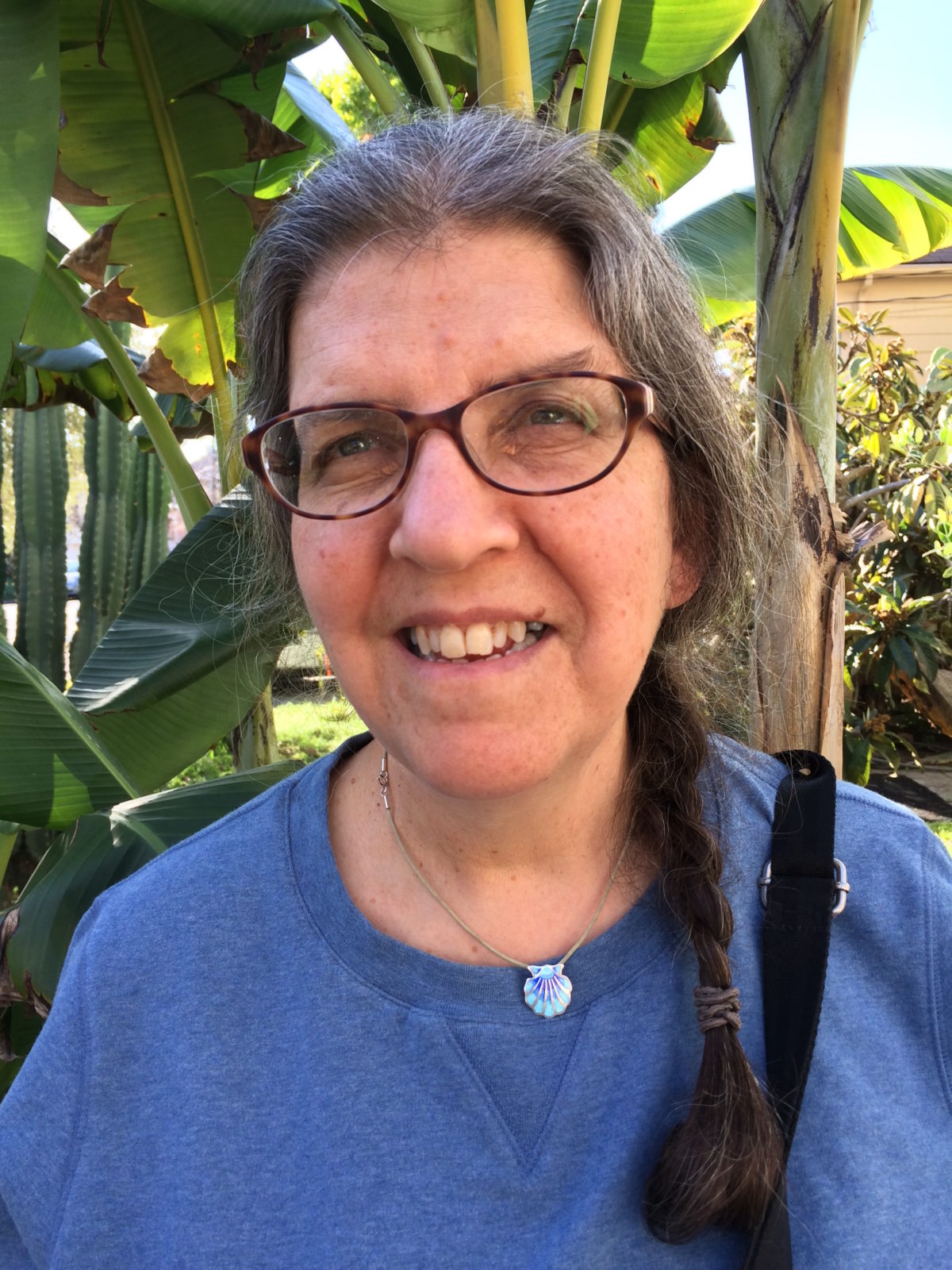By Tamar Enoch
Thay wrote the poem, “Please Call Me by My True Names,” after he heard the story of a young girl who was raped by a sea pirate as she and her family were fleeing Vietnam in a boat after the Communist takeover. After the rape, the girl, who was only twelve, jumped into the ocean and drowned herself. When you first hear a story like this,
By Tamar Enoch
Thay wrote the poem, “Please Call Me by My True Names,” after he heard the story of a young girl who was raped by a sea pirate as she and her family were fleeing Vietnam in a boat after the Communist takeover. After the rape, the girl, who was only twelve, jumped into the ocean and drowned herself. When you first hear a story like this, Thay acknowledges, you take the young girl’s side and condemn the pirate. But our practice is to learn how not to take sides—how to recognize both the girl and the sea pirate in ourselves.
I’ve often thought about this teaching since I began to practice with a Sangha that meets behind the walls of a federal men’s prison. The Sangha, led by a Zen priest, consists of about thirty inmates and a dozen “outside guests” who join together once a week for an evening of meditation, chanting, and Dharma study.
A VIOLENT CRIME
When I first started to practice in prison, I never imagined my own life would be seared by a violent crime. Then, one Friday afternoon in late September, my Dharma sister Julia was stabbed as she left our Zen Center. The assailant was a teenage boy trying to carjack her old Honda. Julia died a week later without ever regaining consciousness.
The first time I went into the prison after the tragedy, I wasn’t sure if I’d be able to talk to the inmates about Julia’s murder. It would be evasive not to mention something so major, if any of the men inquired, as they often did, how things were going for me. On the other hand, many of the men were serving time for crimes like the one that took my sister’s life. Now I was on the “victim” side.
As it turned out, the choice was made for me because the murder came up during the Dharma discussion. Many of the men had seen the local TV news stories about the crime, including interviews with our teachers and footage of our Zen Center, especially the garden, which was Julia’s passion.
Talking to the men about Julia felt different from talking to anyone else. In my social circle on the outside, random murder isn’t supposed to happen to people we know. My friends in the Zen Center struggled to process the trauma and weren’t always able to talk about it. When I told friends outside the Center, they often responded with shocked disbelief and asked questions about how, where, and when, as if these details might explain how such a thing could happen. There was no explanation, I wanted to say. It could’ve just as easily been me. I drive an old green car, just like Julia’s. Until the attack, I used to park my car where her car was parked that afternoon.
In contrast, none of the men asked me for details about the crime.
“How are you holding up?” asked Jay, a former gang member.
Hesitantly, I told him how anxious I felt whenever I walked around the neighborhood. I confessed that it was taking all my courage not to cross the street when I saw groups of teenage boys approaching. Jay knew exactly what I meant. When he was a young man, he didn’t feel safe going to the corner store, even in the middle of the day.
“We always went together,” he told me, “five or six of us, packing pistols. And sometimes we’d have another two guys walking behind, keeping guard on the other side of the street.”
“That boy stabbed your whole community,” he sighed.
The year Jay turned twenty-one, he went to six funerals, including that of his brother. These days, he helps lead a program that brings at-risk youth into prison to be mentored by inmates like him. These kids, he’s told me, are going through many of the same things that he went through. Jay wants to help them make better choices than the ones he made.
Another Sangha member, Andre, also a former gang member, sympathized with the plain incredulousness I felt knowing that Julia would no longer be puttering around the Zen Center garden. He’d recently learned that a man he grew up with, Michael, was killed by a stray bullet as he left a party. Like me, Andre was struggling to imagine his old neighborhood without Michael.
Like many of the men, Andre identifies as Christian, even though he’s part of our Buddhist Sangha. I asked if he believed that deaths like Julia’s and Michael’s were part of God’s purpose. He said he didn’t pretend to know God’s purpose. All he knew was that he, Andre, needed to give Michael’s death a purpose. It was up to me, he said, to make Julia’s death mean something.
For the past three years, Andre has helped organize a prison-wide Peace Festival featuring art, music, and poetry, as well as speeches and workshops on the themes of peace and reconciliation.
LETTING GO OF THE PAST
Before I left at the end of the evening, I spoke with Clarence. He asked me what many of the other men probably wanted to know. “How does it feel to be here with us, now that this has happened to your friend? Are you still going to keep coming?”
Clarence was one of the first men I got to know when I started going to the prison. Back then, he was just starting to meditate, so we were both newcomers. I could always count on him for a reassuring smile and a friendly greeting. Clarence and I talked about practice often. He was touchingly eager to change but completely terrified by the prospect. I learned a lot from him about what it’s like to practice in a prison. His courage and determination often lifted my spirits and inspired my own practice.
As a prison volunteer, I’ve been instructed to never ask inmates about the crimes that led to their incarceration. However, about a year and a half after we met, Clarence asked me if I would read an autobiographical essay he’d written. When I agreed, he handed me a piece of paper and quickly walked away. Reading the essay, I learned he was serving forty-one years to life for murder. I also learned that his mother was a drug addict and that he’d been raised in a series of foster homes. He’d been abused many times; in one place he was beaten with a wire coat hanger and forced to huddle naked in a bathtub for hours. He began getting high when he was ten. It was the only way he knew to ease his pain.
The autobiography left me deeply unsettled. It was one thing to know in principle that some men in the prison Sangha had committed violent crimes; it was another thing to receive such a specific confession. During the weeks after I read Clarence’s essay, I struggled to incorporate the notion of murder with my experience of him.
It helped to return to Thay’s poem, “Please Call Me by My True Names,” and to acknowledge to myself that if I’d lived Clarence’s life, I might also be in prison for murder. I remembered a teaching Thay offered to Vietnam veterans: if we stick to the suffering we’ve caused in the past, we allow it to paralyze us. The Buddha teaches that we need to let go of the past and instead use our energy to work for peace and healing in the present.
It was six months before Clarence and I had a direct conversation about his autobiography. When we did, thanks to Thay’s teaching, I was able to tell him honestly that who he is today is more important to me than what he has done.
So, on the evening after Julia’s death, when Clarence asked if I’d continue coming to prison, I took a few breaths and realized, to my surprise, that visiting the prison was one of the most comforting things I’d done that week.
“Of course I’ll keep coming,” I said. Then I found myself saying without any irony at all, “I hope the young man who did the crime grows up to be like you.”
We both teared up.
The evening was over. The men headed back to their cells for the night, and the outside guests processed through all the checkpoints that lie between prison and the free world. Outside the walls, the western sky was streaked with pink, orange, and gold clouds glowing against the deepening blue of twilight.
TRANSFORMING SUFFERING
As I walked to my car, I remembered the story of a young woman who came to the Buddha, overcome by grief at the loss of her only child, and begged him to bring her baby back to life. The Buddha said he would do so if she brought him a handful of mustard seeds from a home where nobody had died. The woman went from house to house asking for the seeds, and at every house, she heard a different story of grief and loss. She never found the mustard seeds, but by the time she returned to the Buddha, she recognized that her loss connected her with—rather than separated her from—the rest of her village.
Entering the prison earlier that evening, I’d worried about awkward confrontations with guilty perpetrators. Instead I found men who knew the pain of violence and yet were dedicated to healing themselves and their communities, perhaps preventing more violence.
I stood by my car for a while, watching the sky. As the last colors melted into night, I made a choice not to let the shock, grief, and guilt of Julia’s murder overwhelm me. Her death was horrible and senseless, but, as Andre had said, I could choose to give it purpose. Jay, Andre, and Clarence were working, each in his own way, to transform the suffering caused by violent crime inside the walls of a prison. I could at least try to do the same thing on the outside.
Some names and identifying details have been altered to protect confidentiality.

Tamar Enoch, Tam Nhat Hoa/Heart of Single Flower, began Dharma practice in 1995 and has been living in residential Dharma centers since 1998. She received lay ordination in the Soto Zen tradition from Sojun Mel Weitsman in 2005 and became an aspirant to the Order of Interbeing in 2014. She practices with the Potluck Sangha in Oakland, California; at the Berkeley Zen Center; and with the prison Sangha described in this essay.

